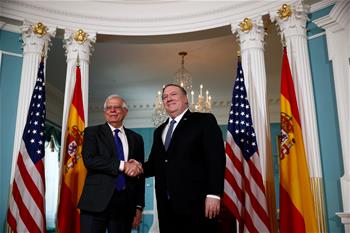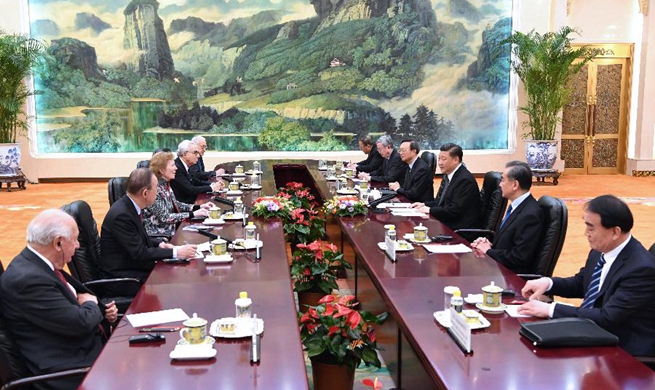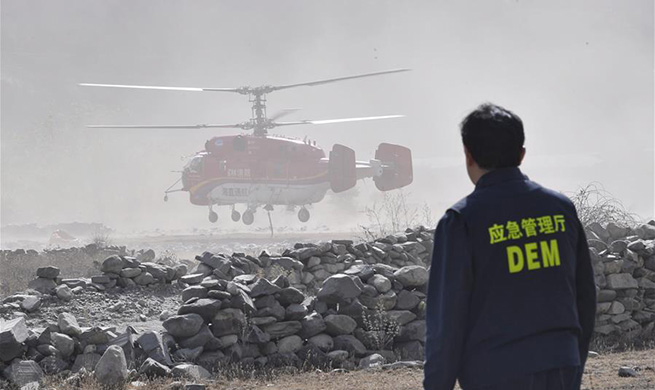WASHINGTON, April 2 (Xinhua) -- Freedom Partners, a free-market, non-partisan advocacy group, on Tuesday urged the Trump administration to preserve commerce between the United States and Mexico, in response to the president's threat to close the border.
In a statement, executive vice president of the group, Nathan Nascimento, said trade with Mexico and other nations is a big reason why the American economy is strong, and the flow of goods and people is central to improving lives and removing barriers to opportunity.
"Closing down the border would devastate American businesses, families and workers," he said. "We urge the administration to support more trade with Mexico, not impose new barriers to it."
"While immigration reform is long overdue, it's best addressed by the administration and Congress together -- not by punishing Americans," Nascimento said.
U.S. President Donald Trump on Friday threatened to close the nation's southern border with Mexico amid feud over illegal immigration, drawing a strong backlash.
"If Mexico doesn't immediately stop ALL illegal immigration coming into the United States through our southern border, I will be closing the border, or large sections of the border, next week," Trump said on Twitter.
The threat came a day after Trump criticized Mexico and several Central American nations for not halting illegal immigrants heading north to cross the U.S. border. The president's remarks stood in contrast with those of Homeland Security Secretary Kirstjen Nielsen, who has thanked Honduras, Guatemala and El Salvador for their efforts to help the United States secure the border.
Trump repeatedly threatened to seal the southern border late last year, when the White House and Congressional Democrats couldn't reach an agreement over his demand for billions of U.S. dollars in funding for a wall along the U.S.-Mexico border, a plank of his 2016 presidential campaign.
The latest threats were issued after U.S. border officials said they are facing an increase in asylum seekers along the southern border, many of them reportedly children and families, fleeing violence and economic hardship in Central America.












